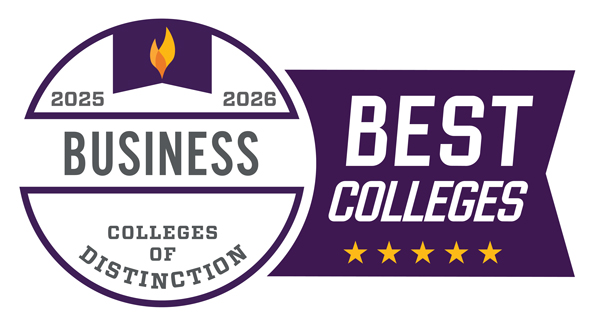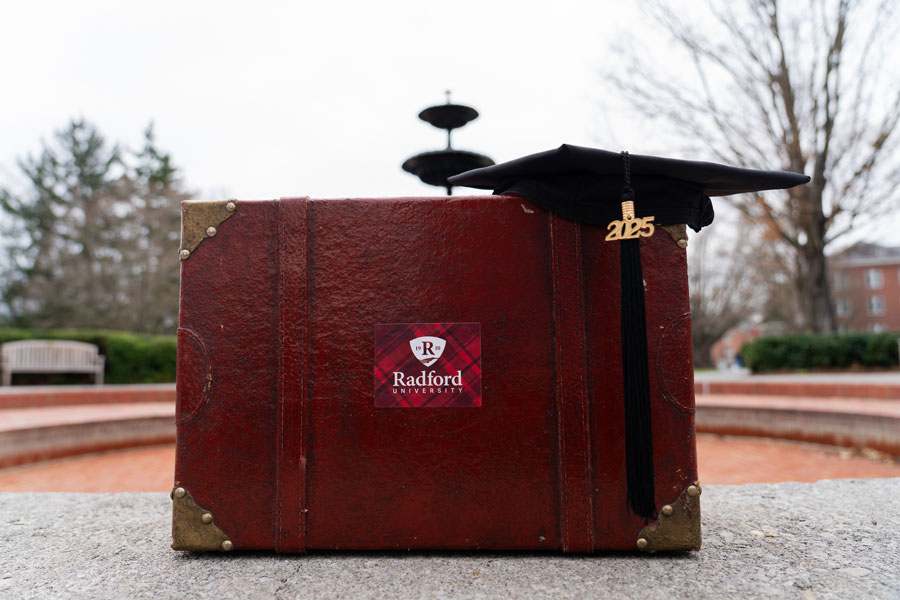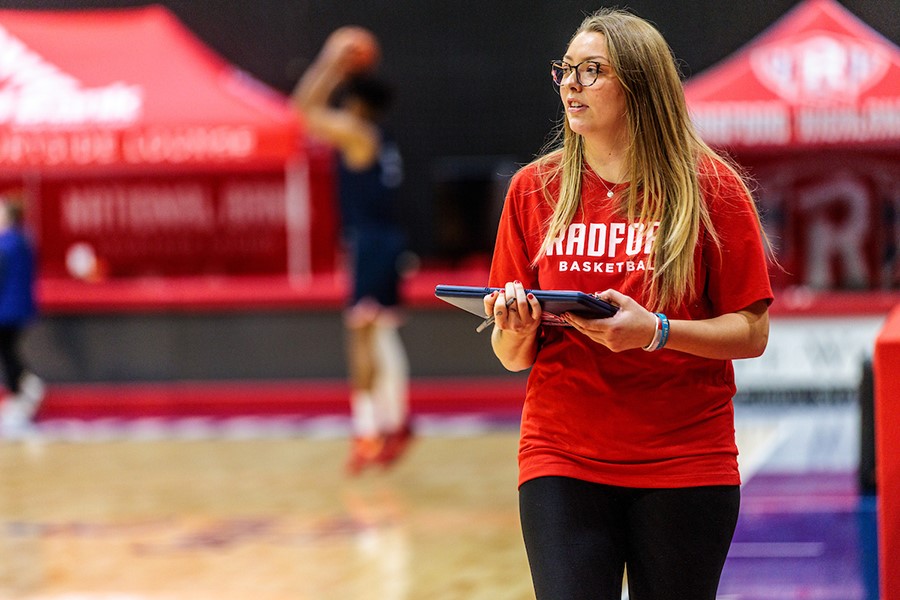Radford University
Davis College of Business and Economics
The Best in Business

Welcome to the Davis College of Business and Economics at Radford University, where innovation meets opportunity and excellence is nurtured. Our college offers a wide range of programs tailored to meet the diverse needs and interests of our students. From undergraduate majors to graduate programs and certificates, we provide a comprehensive education that prepares students for success in today's competitive business world.
Academic Departments
Kyle Hall
Home of the Davis College of Business and Economics
One of the crown jewels of the Davis College of Business and Economics is its striking $44 million, 110,000-square-foot building. Inside, innovative facilities such as auditorium-style classrooms, conference rooms and collaborative spaces foster an environment that encourages teamwork and creativity. The building is fully equipped with the latest educational technology and financial research capabilities, boasting a state-of-the-art "trading room."


Outreach Centers and Programs
Radford University's Davis College of Business and Economics' outreach centers and programs serve to support business throughout the Commonwealth of Virginia and specifically throughout Western Virginia.
Colleges of Distinction

Colleges of Distinction has honored Radford University for its strong undergraduate degree in business. Thanks to a well-rounded curriculum with hands-on experiences, our business students are prepared to enter the workforce with strong leadership skills and the ability to succeed in an ever-evolving society.
Accolades
-
2024 Best Online MBA Program
2024
Best Online MBA Program
U.S. News & World Report
-
2024 Best Value Online MBA
2024
Best Value Online MBA
DiscoverBusiness
-
2023 Best Business Schools
2023
Best Business Schools
The Princeton Review
-
2023 Best Part-Time MBA Programs
2023
Best Part-Time MBA Programs
Fortune
Davis College of Business and Economics News
-
George Zama ’25 reflects on Radford, resilience and giving back
December 18, 2025
George Zama ’25 has always believed that success means little unless it elevates others.

-
Highlander Highlights: Week of Dec. 8, 2025
December 12, 2025
Highlander Highlights shares with readers some of the extraordinary research and accomplishments happening on and off campus through the tireless work and curiosity of our students, staff and faculty.

-
Find your place, take it with you: celebrating the Radford University class of winter 2025
December 10, 2025
Get to know seven graduates of the Class of Winter 2025 and the moments that made their Radford journey unforgettable.






